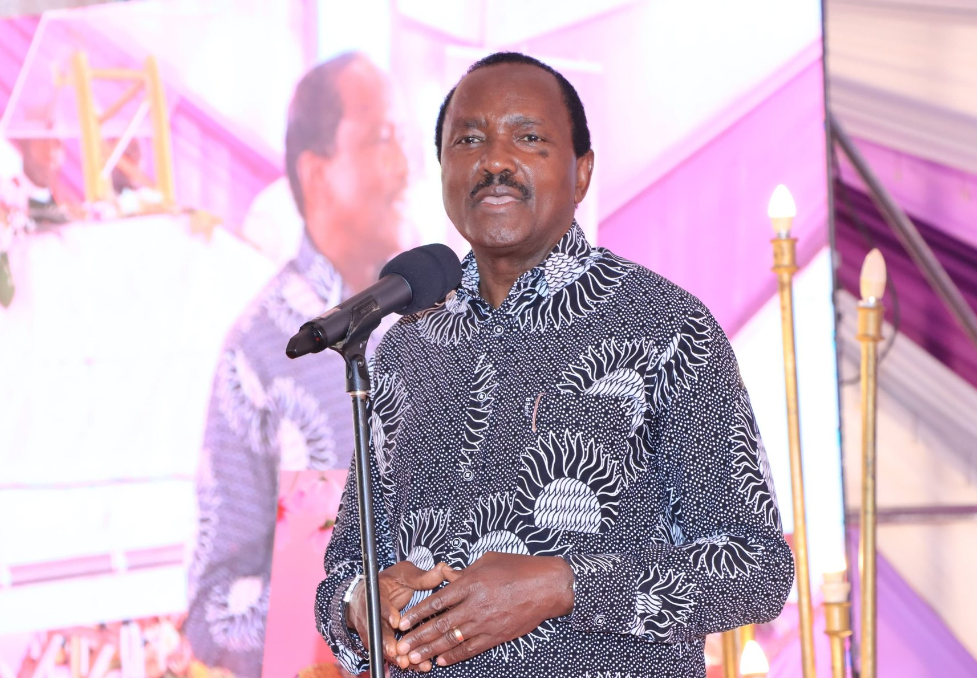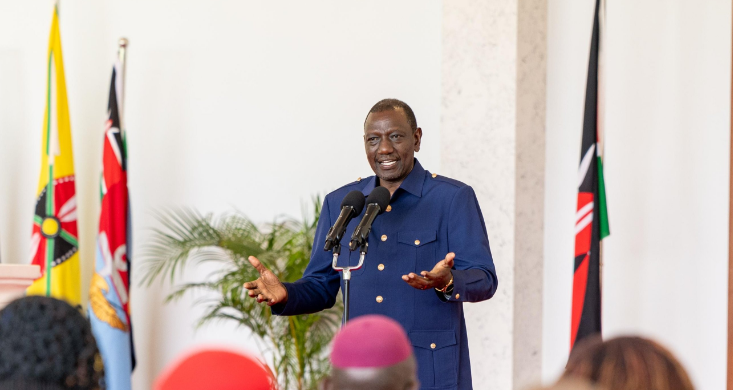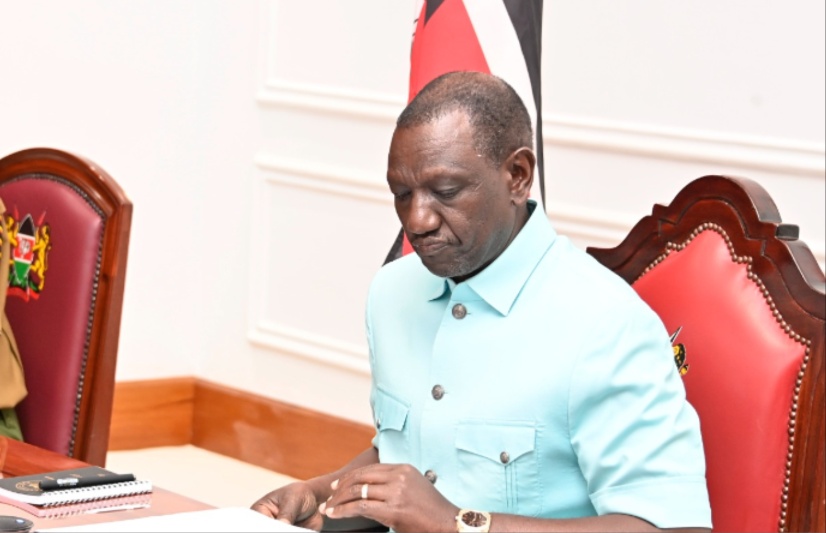Facts About PSC In Regards To PSIP
The first you must do after you have been shortlisted by any company before you attendant the interview, is definitely researching about your potential employer. In this case, your employer in the Kenyan Government, however, you shall be working under Public Service Commission which is under the Ministry of Public Service, Performance and Delivery Management. […]

The first you must do after you have been shortlisted by any company before you attendant the interview, is definitely researching about your potential employer.
In this case, your employer in the Kenyan Government, however, you shall be working under Public Service Commission which is under the Ministry of Public Service, Performance and Delivery Management.
This article will seek to help you know more about Public Service Commission , so that you can face the recruitment panel with confidence.
We shall also look at the Government in relation to Public Service Commission
Below are the facts you should know about PSC
Public Service Commission
1. How was the Public Service Commission established ?
The Public Service Commission (PSC) of Kenya was established in 1954 by the British Colonial Government following the Holmes Commission Report of 1948. The PSC was initially known as the Civil Service Commission and played an advisory role to the Governor in matters of appointments.
At independence in 1963, the PSC was enshrined in the Constitution and renamed the Public Service Commission. Under the Independence Constitution, there were Regional PSCs, but these were abolished in 1964 following a constitutional amendment.
The PSC is the oldest Constitutional Commission in Kenya, and its mandate has expanded over the years. The Commission is currently constituted of a Chairperson, Vice Chairperson, and seven members, all of whom are appointed by the President. The PSC is responsible for human resource management in the public service, including the civil service and local authorities.
2. What is the Mission, Vision & Core Values of PSC ?
Mission
A Citizen-Centric Public Service.
Vision
To Reform and Transform the Public Service for Efficient and Effective Service Delivery.
Core Values
- Citizen Focus,
- Professionalism
- Innovation
- Teamwork
3. What is the Role, Responsibility, Mandate and Duties of PSC
The mandate of the Commission is spelt out in Articles 234, 155(3)(a), 158(2)(3) and (4), 171(2), 230(2)(b) and 236 of the Constitution.
This includes
- Establishment and abolition of offices,
- Provision of competent human resource,
- Promotion of good governance and ensuring efficiency and effectiveness in the provision of quality services in the public service.
In discharging the mandate, the Commission is guided by the values and principles in Articles 10 and 232 of the Constitution, Public Service Commission Act of 2017, Public Service (Values and Principles) Act, 2015 and other relevant legislations.
FUNCTIONS AND POWERS OF THE COMMISSION
The functions and powers of the Commission are set out in Article 234 of the Constitution and the enabling legislation as follows:
1. Subject to the Constitution and legislation:
(i) Establish and abolish offices in the public service; and
(ii) Appoint persons to hold or act in those offices, and to confirm appointments;
2. Exercise disciplinary control over and remove persons holding or acting in those offices;
3. Promote the values and principles referred to in Articles 10 and 232 throughout the public service;
4. Investigate, monitor and evaluate the organization, administration and personnel practices of the public service;
5. Ensure that the public service is efficient and effective;
6. Develop human resource in the public service;
7. Review and make recommendations to the national government in respect of conditions of service, code of conduct and qualifications of officers in the public service;
8. Evaluate and report to the President and Parliament on the extent to which the values and principles referred to in Articles 10 and 232 are complied with in the public service;
9. Hear and determine appeals in respect of county governments’ public service;
10. Nominate persons to the Judicial Service Commission and Salaries Remuneration Commission under Articles 171(2) and 230(2){b} respectively;
11. Recommend persons to be appointed as Principal Secretaries under Article 155 (3) (a);
12. Receive and process petitions for the removal of the Director of Public Prosecutions and recommend the appointment of a tribunal to investigate the complaints under Article 158(2) (3) and (4);
13. Receive petitions for the removal of the Registrar and Assistant Registrars of political parties in accordance with Section 37 of the Political Parties Act;
14. Protect public officers against victimization and discrimination while discharging their duties in accordance with Article 236 of the Constitution;
15. Recruit and select Vice Chancellors, Deputy Vice Chancellors of Public Universities and Principals and Deputy Principals of Constituent Colleges, under the Universities Act, 2012 (No. 42 of 2012) section 35(1) (a)(v) as amended in the Statute Law (Miscellaneous Amendments) Act 2018; and
16. Perform any other functions and exercise any other powers conferred by national legislation.
4. What are the names of individuals heading PSC ?
You need to understand the bosses heading PSC.
The Commission is currently constituted of a Chairperson, Vice Chairperson, and seven members, all of whom are appointed by the President.
Here are notable bosses at the helm of PSC
- Moses Kuria – CS Ministry of Public Service, Performance and Delivery Management
- Dr. Nicholas Muraguri – Principal Secretary, State Department of Public Service
- Ambassador Anthony Mwaniki Muchiri – Chairperson
- Ms. Charity Seleina Kisotu – Vice Chairperson
- Fcs, Dr. Simon Ka Rotich, Mbs, Ebs, Cbs, Commission Secretary/CEO
Seven Members of the PSC
- Dr. Joyce K. Nyabuti, Mbs, Commissioner
- Dr. Mary C. Mwiandi, Phd, Mbs, Commissioner
- Dr. Reuben K. Chirchir, Phd,Mbs, Commissioner
- Amb. Patrick S. Wamoto, Ebs, Commmissioner
- Amb. Salma A. Ahmed, Mbs, Commissioner
- Mr. Andrew N. Muriuki, Mbs, Commissioner
- Ms. Joan A. Otieno, Mbs, Commissioner
5. What is the history of PSC ?
The Commission dates back to 1954 when Civil Service Commission was established by British Colonial Government following Holmes Commission Report, 1948. Civil Service Commission played an advisory role to the Governor in matters of appointments. At independence in 1963, it was enshrined in the Constitution and renamed Public Service Commission (PSC). Under the Independence Constitution there were Regional PSCs but these were abolished in 1964 following constitutional amendment. PSC is the oldest Constitutional Commission, whose mandate has expanded over the years.
The Commission then constituted of a Chairman, a Deputy Chairman and fifteen members all appointed by the President. It handled matters of human resource management in the public service, especially the civil service and local authorities. The Constitution of Kenya, 2010 promulgated on 27th August 2010 reconstituted the Commission with a redefined and expanded mandate and a lean membership of Chairperson, Vice Chairperson and seven members.
Government of Kenya
You will be working under the executive arm of the government , this means that you will be deployed to work under either if the following – Ministries, State Departments, Corporations and Public Universities.
This means that as an intern, you will be their to execute the business of the government. Thus we want to look out at some of the business the government is currently undertaking.
Knowing these government businesses better known as Government Agenda, will make you answer those questions from the panel with much needed confidence
1. Name any Ministry under the Kenyan Government ?
All the business of the State is placed under the following Ministries
Here are the current ministries in Kenya and their heads
- Ministry of Agriculture, Livestock, and Fisheries: Mithika Linturi
- Ministry of Commerce, Industry, and Enterprise Development: Moses Kuria
- Ministry of Cooperatives and Micro, Small and Medium Enterprises Development: Simon Chelugui
- Ministry of Defence: Aden Duale
- Ministry of Education: Ezekiel Machogu
- Ministry of Energy and Petroleum: Davis Chirchir
- Ministry of Environment, Forestry and Climate Change: Soipan Tuya
- Ministry of Foreign Affairs and Diaspora Affairs: Alfred Mutua
- Ministry of Health: Susan Nakhumicha Wafula
- Ministry of Home Affairs and National Administration: Kithure Kindiki
- Ministry of Housing, Urban Development, and Public Works: Alice Wahome
- Ministry of Information, Communications and the Digital Economy: Eliud Owalo
- Ministry of Interior and Coordination of National Government: Kithure Kindiki
- Ministry of Justice and Legal Affairs: Justin Bedan Njoka Muturi
- Ministry of Labour and Social Protection: Florence Bore
- Ministry of Lands and Physical Planning: Zachariah Mwangi Njeru
- Ministry of Mining, Blue Economy, and Maritime Affairs: Salim Mvurya
- Ministry of National Treasury and Economic Planning: Njuguna Ndung’u
- Ministry of Public Service, Performance and Delivery Management: Moses Kuria
- Ministry of Roads, Transport and Public Works: Peninah Malonza
- Ministry of Sports, Culture and the Arts: Ababu Namwamba
- Ministry of Tourism, Wildlife and Heritage: Peninah Malonza
- Ministry of Water, Sanitation and Irrigation: Rebecca Miano
- Ministry of Women, Gender, and Youth Affairs: Aisha Jumwa
These ministries are responsible for implementing the government’s agenda and for providing services to the Kenyan people. They are led by Cabinet Secretaries, who are appointed by the President.
In regards to your qualifications, and where you are more likely to be deployed, we advise you to read more info about the ministry or the state department so that you are well equipped
2. Name the current Agendas of the Kenya Government ?
The current agendas of the Kenya government are:
- Bottom-Up Economic Transformation Agenda (BETA): This is the flagship economic agenda of the government of President William Ruto. It is a people-centered approach to economic development that aims to empower Kenyans at the bottom of the socioeconomic pyramid. BETA is anchored on five key pillars: agricultural transformation, renewed focus on the Micro, Small and Medium Enterprise (MSME) sector, affordable housing and settlement, universal healthcare, and increased digital superhighway and creative industry.
- Big 4 Agenda: This agenda was launched by President Uhuru Kenyatta in 2018 and focuses on four key areas: food security, manufacturing, affordable housing, and universal healthcare. The government has made significant progress on the Big 4 Agenda, but there is still more work to be done.
- Vision 2030: This is a long-term development plan that aims to transform Kenya into a newly industrializing, middle-income country by 2030. Vision 2030 is based on three pillars: economic growth, social development, and equity and governance.
In addition to these agendas, the government is also focused on a number of other areas, including:
- Security: The government is committed to providing security for all Kenyans. This includes addressing the threat of terrorism, border security, and internal security.
- Education: The government is committed to providing quality education for all Kenyans. This includes expanding access to education, improving the quality of teaching and learning, and making education more affordable.
- Healthcare: The government is committed to providing universal healthcare for all Kenyans. This includes expanding access to healthcare, improving the quality of healthcare services, and making healthcare more affordable.
- Infrastructure: The government is committed to developing Kenya’s infrastructure. This includes roads, railways, airports, ports, and energy.
- Environment: The government is committed to protecting Kenya’s environment. This includes addressing climate change, conserving natural resources, and managing waste.
The government is also working on a number of other initiatives, such as promoting gender equality, youth empowerment, and social protection.
3. Explain the key pillars of BETA Agenda
The Bottom-Up Economic Transformation Agenda (BETA) is the flagship economic agenda of the government of President William Ruto of Kenya. It is a people-centered approach to economic development that aims to empower Kenyans at the bottom of the socioeconomic pyramid.
Pillars of BETA
BETA is anchored on five key pillars:
- Agricultural transformation
- Renewed focus on the Micro, Small and Medium Enterprise (MSME)
- Affordable housing and settlement
- Universal healthcare
- Increased digital superhighway and creative industry
1. Agricultural transformation:
This pillar aims to make Kenya a food secure and self-sufficient nation by investing in agriculture. This includes providing farmers with access to affordable inputs, credit, and markets.
Some of the specific initiatives under this pillar include:
- Expanding irrigation schemes to boost agricultural productivity
- Providing farmers with subsidized fertilizers and seeds
- Establishing grain reserves to stabilize food prices
- Promoting crop diversification to reduce reliance on a few key crops
- Supporting value addition in the agricultural sector
2. Renewed focus on the Micro, Small and Medium Enterprise (MSME) sector:
MSMEs are the backbone of the Kenyan economy, accounting for over 70% of employment and 40% of GDP. BETA aims to support MSMEs by providing them with access to finance, training, and markets.
Some of the specific initiatives under this pillar include:
- Establishing a revolving fund to provide affordable loans to MSMEs
- Providing MSMEs with access to government procurement opportunities
- Investing in training and capacity building for MSME owners and managers
- Linking MSMEs to domestic and international markets
3. Affordable housing and settlement:
This pillar aims to address Kenya’s housing shortage and make homeownership more accessible to low-income Kenyans.
Some of the specific initiatives under this pillar include:
- Building one million affordable houses in five years
- Providing subsidies to help low-income Kenyans purchase homes
- Promoting public-private partnerships in the housing sector
- Reforming the land tenure system to make it easier for people to acquire land
4. Universal healthcare:
This pillar aims to provide all Kenyans with access to quality and affordable healthcare.
Some of the specific initiatives under this pillar include:
- Expanding health insurance coverage
- Building more hospitals and clinics
- Providing subsidies for healthcare services
- Investing in training and capacity building for healthcare workers
5. Increased digital superhighway and creative industry:
This pillar aims to invest in digital infrastructure and support the creative industry. This is aimed at creating jobs and driving economic growth.
Some of the specific initiatives under this pillar include:
- Expanding the fiber optic network to connect more Kenyans to the internet
- Investing in digital skills training
- Providing grants to artists and filmmakers
- Promoting the creative industry through festivals and other events
The BETA agenda is a bold and ambitious plan to transform the Kenyan economy. It is still in its early stages of implementation, but it has the potential to make a significant impact on the lives of Kenyans.
The government has allocated 278.7 billion shillings for all the programmes under Beta in the 2023/2024 budget. It remains to be seen how effective BETA will be in achieving its goals, but it has the potential to make a significant impact on the Kenyan economy.
4. Give Examples of how the BETA agenda is being implemented ?
Here are 10 examples of how the Bottom-Up Economic Transformation Agenda (BETA) is being implemented in President William Ruto’s government in Kenya:
- Hustlers Fund: The government has launched the Hustlers Fund, a revolving fund that provides affordable loans to small businesses and individuals.
- County aggregation industrial parks: The government is investing in county aggregation industrial parks to unlock the vast industrial potential at the grassroots throughout the country.
- Digital superhighway: The government is expanding the digital superhighway by connecting more schools and villages to the internet.
- Creative industry: The government is supporting the creative industry by providing grants to artists and filmmakers.
- Affordable housing: The government is building affordable houses through the Kenya Mortgage Refinancing Company (KMRC).
- Universal healthcare: The government is expanding health insurance coverage through the National Hospital Insurance Fund (NHIF).
- Agricultural transformation: The government is providing farmers with access to affordable inputs, credit, and markets through the Agricultural Finance Corporation (AFC).
- MSME sector: The government is supporting MSMEs by providing them with access to finance, training, and markets through the Kenya Industrial Estates Corporation (KIE).
- Youth empowerment: The government is empowering the youth by providing them with access to education and training, and by creating jobs through the National Youth Employment Programme (KYEOP).
- Women empowerment: The government is empowering women by providing them with access to finance, training, and markets through the Women Enterprise Fund (WEF).
These are just a few examples of how the BETA agenda is being implemented in Kenya. The government is committed to making BETA a success, and it is already having a positive impact on the lives of Kenyans.
5. Describe Agenda Kenya under President Ruto
President William Ruto’s agenda for Kenya, also known as the Bottom-Up Economic Transformation Agenda (BETA), is a people-centered approach to economic development that aims to empower Kenyans at the bottom of the socioeconomic pyramid. It is anchored on five key pillars:
- Agricultural transformation: This pillar aims to make Kenya a food secure and self-sufficient nation by investing in agriculture. This includes providing farmers with access to affordable inputs, credit, and markets.
- Renewed focus on the Micro, Small and Medium Enterprise (MSME) sector: MSMEs are the backbone of the Kenyan economy, accounting for over 70% of employment and 40% of GDP. BETA aims to support MSMEs by providing them with access to finance, training, and markets.
- Affordable housing and settlement: BETA aims to address Kenya’s housing shortage and make homeownership more accessible to low-income Kenyans. This includes building affordable houses and providing subsidies to help low-income Kenyans purchase homes.
- Universal healthcare: BETA aims to provide all Kenyans with access to quality and affordable healthcare. This includes expanding health insurance coverage and building more hospitals and clinics.
- Increased digital superhighway and creative industry: This pillar aims to invest in digital infrastructure and support the creative industry. This is aimed at creating jobs and driving economic growth.
The BETA agenda is still in its early stages of implementation, but it has the potential to make a significant impact on the Kenyan economy. The government has allocated 278.7 billion shillings for all the programmes under Beta in the 2023/2024 budget.
Here are some examples of how the BETA agenda is being implemented:
- The government has launched the Hustlers Fund, a revolving fund that provides affordable loans to small businesses and individuals.
- The government is investing in county aggregation industrial parks to unlock the vast industrial potential at the grassroots throughout the country.
- The government is expanding the digital superhighway by connecting more schools and villages to the internet.
- The government is supporting the creative industry by providing grants to artists and filmmakers.
The BETA agenda is a bold and ambitious plan to transform the Kenyan economy. It has the potential to make a significant impact on the lives of Kenyans, but it is important to note that it is still in its early stages of implementation. It will be necessary to monitor the implementation of the agenda closely to ensure that it is achieving its objectives.
6. Describe vision 2030 under the current administration ?
Vision 2030 is a long-term development blueprint that aims to transform Kenya into a newly industrializing, middle-income country by 2030. It is based on three pillars: economic growth, social development, and equity and governance.
The current administration in Kenya is committed to implementing Vision 2030. It has made significant progress on a number of initiatives, including:
- Economic growth: The economy has grown at an average of 5% per year over the past decade. This has led to a significant increase in living standards for Kenyans.
- Social development: The government has made significant investments in education, healthcare, and social protection. This has led to improved outcomes for Kenyans in these areas.
- Equity and governance: The government has implemented a number of reforms to improve equity and governance. This includes the devolution of power to counties, the implementation of a new constitution, and the creation of independent institutions to oversee the government.
The government is also working on a number of other initiatives to achieve Vision 2030, such as developing infrastructure, promoting innovation, and protecting the environment.
Here are some specific examples of how the current administration is implementing Vision 2030:
- The government is investing in the Big 4 Agenda, which focuses on food security, manufacturing, affordable housing, and universal healthcare.
- The government is also investing in the Bottom-Up Economic Transformation Agenda (BETA), which is a people-centered approach to economic development that aims to empower Kenyans at the bottom of the socioeconomic pyramid.
- The government is also investing in infrastructure, such as roads, railways, and airports.
- The government is also promoting innovation and entrepreneurship through initiatives such as the Ajira Digital program.
- The government is also protecting the environment through initiatives such as the Green Economy Strategy and Climate Change Action Plan.
The implementation of Vision 2030 is still ongoing, but the current administration has made significant progress. The government is committed to achieving Vision 2030 and transforming Kenya into a newly industrializing, middle-income country.
7. Describe Public Service Transformation Rapid Results Initiative (PSTRSI) recently launched by CS Kuria
The Public Service Transformation Rapid Results Initiative (PSTRSI) is a new initiative launched by Cabinet Secretary for Public Service Moses Kuria in November 2023. The initiative is aimed at enhancing service delivery in the public sector by focusing on specific, measurable, achievable, relevant, and time-bound results.
The PSTRSI is being implemented in three phases:
- Phase 1: This phase involved the identification of 100 priority results. These results were identified based on the following criteria:
- Impact: The results must have a significant impact on the lives of Kenyans.
- Feasibility: The results must be achievable within a short period of time.
- Measurability: The results must be measurable so that progress can be tracked.
- Phase 2: This phase involves the development of action plans for each of the 100 priority results. The action plans will identify the specific steps that need to be taken to achieve each result, the resources that are needed, and the timelines for completion.
- Phase 3: This phase involves the implementation of the action plans and the monitoring of progress. The PSTRSI will be monitored by a steering committee chaired by the Cabinet Secretary for Public Service. The steering committee will meet regularly to review progress and make adjustments to the action plans as needed.
The PSTRSI is a bold and ambitious initiative that has the potential to make a significant impact on service delivery in the public sector. The government is committed to implementing the PSTRSI and achieving the 100 priority results.
Here are some specific examples of the 100 priority results that are being targeted under the PSTRSI:
- Reduce the time it takes to process business permits from 30 days to 7 days.
- Reduce the time it takes to get a passport from 21 days to 7 days.
- Reduce the time it takes to clear goods at the port from 7 days to 3 days.
- Increase the number of farmers who have access to affordable inputs by 50%.
- Increase the number of MSMEs that have access to finance by 25%.
- Increase the number of Kenyans who have access to health insurance by 10%.
- Increase the number of Kenyans who have access to clean water and sanitation by 5%.
- Reduce the number of crimes committed by 20%.
- Increase the number of students who pass their national exams by 10%.
These are just a few examples of the 100 priority results that are being targeted under the PSTRSI. The government is confident that the PSTRSI will make a significant impact on service delivery in the public sector and improve the lives of Kenyans.
8. Describe the current news and information in regards to government business and agenda in Kenya
Current news and information in regards to government business and agenda in Kenya:
- Cabinet Secretary for Public Service Moses Kuria has launched the Public Service Transformation Rapid Results Initiative (PSTRSI). The PSTRSI is a new initiative aimed at enhancing service delivery in the public sector by focusing on specific, measurable, achievable, relevant, and time-bound results. The PSTRSI is targeting 100 priority results, including reducing the time it takes to process business permits, passports, and clear goods at the port, increasing the number of farmers who have access to affordable inputs, and increasing the number of Kenyans who have access to health insurance.
- The government is also working on implementing the Bottom-Up Economic Transformation Agenda (BETA). BETA is a people-centered approach to economic development that aims to empower Kenyans at the bottom of the socioeconomic pyramid. BETA is anchored on five key pillars: agricultural transformation, renewed focus on the Micro, Small and Medium Enterprise (MSME) sector, affordable housing and settlement, universal healthcare, and increased digital superhighway and creative industry.
- The government has also launched the Hustlers Fund, a revolving fund that provides affordable loans to small businesses and individuals. The Hustlers Fund is part of BETA and is aimed at helping Kenyans to start and grow their businesses.
- The government is also investing in the Big 4 Agenda, which focuses on food security, manufacturing, affordable housing, and universal healthcare. The Big 4 Agenda is a key component of Vision 2030, which is a long-term development blueprint that aims to transform Kenya into a newly industrializing, middle-income country by 2030.
- The government is also working on a number of other initiatives, such as developing infrastructure, promoting innovation, and protecting the environment.
Overall, the government is making significant progress on its agenda. However, there are still many challenges that need to be addressed. The government is committed to working with all Kenyans to achieve its agenda and transform Kenya into a prosperous and equitable country.
In addition to the above, here are some other recent news and information in regards to government business and agenda in Kenya:
- The government has allocated 278.7 billion shillings for all the programmes under Beta in the 2023/2024 budget.
- The government is also working on implementing the Digital Superhighway Master Plan, which is a blueprint for developing Kenya’s digital infrastructure.
- The government is also working on implementing the National Spatial Plan, which is a blueprint for developing Kenya’s land use and infrastructure.
- The government is also working on implementing the Universal Healthcare Coverage (UHC) plan, which is aimed at providing all Kenyans with access to quality and affordable healthcare.
The government is committed to implementing its agenda and transforming Kenya into a prosperous and equitable country.
9. Describe challenges faced by PSC in implementing its mandate, roles and duties
The Public Service Commission (PSC) of Kenya faces a number of challenges in implementing its mandate, roles, and duties. These challenges include:
- Inadequate resources: The PSC is often under-resourced, which makes it difficult to carry out its mandate effectively. This includes a shortage of staff, inadequate funding, and outdated equipment and technology.
- Political interference: The PSC is sometimes subject to political interference, which can make it difficult to make independent decisions and to implement its mandate effectively.
- Complex and bureaucratic procedures: The PSC’s procedures are often complex and bureaucratic, which can slow down the process of recruitment, promotion, and disciplinary action.
- Lack of awareness of PSC’s roles and responsibilities: Many public servants are not aware of the PSC’s roles and responsibilities, which can make it difficult for the PSC to carry out its mandate effectively.
- Resistance to change: Some public servants are resistant to change, which can make it difficult for the PSC to implement its reform initiatives.
In addition to the above, the PSC also faces a number of emerging challenges, such as:
- The need to adapt to the changing nature of work: The nature of work is changing rapidly, and the PSC needs to adapt its recruitment, training, and development programs to ensure that public servants have the skills and competencies they need to succeed in the future workplace.
- The need to promote diversity and inclusion: The PSC needs to promote diversity and inclusion in the public service to ensure that it reflects the Kenyan population and that it is able to meet the needs of all Kenyans.
- The need to combat corruption: The PSC needs to play a role in combating corruption in the public service. This includes promoting ethical values and conduct among public servants and taking disciplinary action against those who engage in corrupt practices.
The PSC is aware of these challenges and is working to address them. The PSC has developed a number of initiatives to improve its efficiency and effectiveness, such as the Public Service Transformation Rapid Results Initiative (PSTRSI). The PSC is also working to strengthen its partnerships with other stakeholders, such as the government, the private sector, and civil society organizations.
The PSC is committed to fulfilling its mandate and to making the Kenyan public service a world-class institution.
10. What are the challenges faced by government in implementing its agenda and businesses
Governments face a number of challenges in implementing their agendas and businesses. These challenges include:
- Limited resources: Governments often have limited resources, such as money, staff, and expertise, which can make it difficult to implement their agendas.
- Competing priorities: Governments have to balance a number of competing priorities, such as economic growth, social development, and environmental protection. This can make it difficult to focus on implementing any one agenda.
- Bureaucratic red tape: Governments are often bureaucratic, with complex procedures and regulations that can slow down the implementation of agendas.
- Political interference: Governments can be subject to political interference, which can make it difficult to implement agendas that are not supported by all political parties or interest groups.
- Lack of public support: Governments need to have the support of the public in order to implement their agendas. If the public does not support an agenda, it can be difficult to implement it effectively.
In addition to the above, governments also face a number of emerging challenges, such as:
- The need to adapt to the changing nature of work: The nature of work is changing rapidly, and governments need to adapt their policies and programs accordingly. For example, governments need to invest in training and education programs to help workers develop the skills they need to succeed in the future workplace.
- The need to promote innovation: Governments need to promote innovation in order to drive economic growth and improve the lives of citizens. This includes investing in research and development, and creating an environment that is supportive of entrepreneurs and startups.
- The need to address climate change: Climate change is a major challenge that governments need to address. This includes reducing greenhouse gas emissions, investing in renewable energy, and adapting to the impacts of climate change.
Governments are working to address these challenges. For example, governments are investing in e-government to improve efficiency and reduce costs. Governments are also working to improve public-private partnerships to leverage the resources and expertise of the private sector. Governments are also working to build consensus and support for their agendas through public consultations and engagement.
Despite the challenges, governments are committed to implementing their agendas and improving the lives of citizens. Governments are working to create a more prosperous, equitable, and sustainable future for all.
11. What measures can PSC take to mitigate or counter the challenges it is facing
The Public Service Commission (PSC) can take a number of measures to mitigate or counter the challenges it is facing, including:
- Improve resource allocation: The PSC needs to improve the way it allocates its resources to ensure that they are used efficiently and effectively. This could involve investing in new technologies, hiring more staff, and outsourcing some tasks.
- Reduce bureaucratic red tape: The PSC needs to simplify its procedures and regulations to make it easier and faster to implement its agenda. This could involve eliminating unnecessary steps, streamlining processes, and delegating more authority to staff.
- Strengthen partnerships: The PSC needs to strengthen its partnerships with other stakeholders, such as the government, the private sector, and civil society organizations. This could involve collaborating on projects, sharing resources, and exchanging information.
- Promote transparency and accountability: The PSC needs to be more transparent and accountable to the public. This could involve publishing regular reports on its activities, holding public consultations, and establishing mechanisms for feedback.
- Build a culture of innovation and continuous improvement: The PSC needs to create a culture of innovation and continuous improvement within the public service. This could involve encouraging staff to come up with new ideas, providing training on innovation, and rewarding staff for innovative ideas and solutions.
In addition to the above, the PSC can also take the following specific measures to address the specific challenges it is facing:
- To address the challenge of inadequate resources: The PSC can advocate for increased funding from the government. The PSC can also work with the government to identify and eliminate unnecessary costs.
- To address the challenge of political interference: The PSC can assert its independence and autonomy from political actors. The PSC can also build strong relationships with key stakeholders, such as the media and civil society organizations.
- To address the challenge of complex and bureaucratic procedures: The PSC can review and simplify its procedures and regulations. The PSC can also invest in new technologies to automate and streamline processes.
- To address the challenge of lack of awareness of PSC’s roles and responsibilities: The PSC can raise awareness of its roles and responsibilities through public education campaigns and engagement with stakeholders. The PSC can also develop and implement training programs for public servants on the PSC’s roles and responsibilities.
- To address the challenge of resistance to change: The PSC can build a culture of change within the public service. This could involve engaging with public servants on the need for change, providing training on change management, and rewarding public servants for embracing change.
- To address the need to adapt to the changing nature of work: The PSC can review and update its recruitment, training, and development programs to ensure that public servants have the skills and competencies they need to succeed in the future workplace. The PSC can also work with the government to develop a national skills strategy.
- To address the need to promote diversity and inclusion: The PSC can implement diversity and inclusion initiatives in its recruitment, promotion, and development programs. The PSC can also work with the government to promote diversity and inclusion in the wider public service.
- To address the need to combat corruption: The PSC can develop and implement anti-corruption policies and procedures. The PSC can also work with the government to strengthen anti-corruption institutions and legislation.
By taking these measures, the PSC can mitigate or counter the challenges it is facing and fulfill its mandate to make the Kenyan public service a world-class institution.
12. What measures can Government take to mitigate or counter the challenges it is facing
Governments can take a number of measures to mitigate or counter the challenges they are facing in implementing their agendas and business, including:
- Improve resource allocation: Governments need to ensure that their resources are allocated efficiently and effectively. This includes investing in the right areas, such as education, infrastructure, and healthcare. It also involves eliminating wasteful spending and corruption.
- Reduce bureaucratic red tape: Governments need to streamline their procedures and regulations to make it easier and faster to do business. This includes simplifying forms, eliminating unnecessary steps, and decentralizing decision-making.
- Strengthen partnerships: Governments need to work with other stakeholders, such as the private sector, civil society organizations, and academia, to implement their agendas. This includes sharing resources, collaborating on projects, and exchanging information.
- Promote transparency and accountability: Governments need to be transparent and accountable to the public. This includes publishing regular reports on their activities, holding public consultations, and establishing mechanisms for feedback.
- Build a culture of innovation and continuous improvement: Governments need to create a culture of innovation and continuous improvement within the public service. This encourages staff to come up with new ideas, provides training on innovation, and rewards staff for innovative ideas and solutions.
In addition to the above, governments can also take the following specific measures to address some of the common challenges they face:
- To address the challenge of limited resources: Governments can explore innovative ways to raise revenue, such as through public-private partnerships or asset monetization. Governments can also work with international donors to secure financing for development projects.
- To address the challenge of competing priorities: Governments need to develop clear and strategic plans that prioritize their goals. Governments also need to be able to make trade-offs between different priorities.
- To address the challenge of political interference: Governments need to strengthen their institutions and processes to protect them from political interference. Governments also need to promote transparency and accountability to deter political interference.
- To address the challenge of lack of public support: Governments need to communicate their agendas effectively to the public and build support for their policies. Governments also need to be responsive to the needs of the public and make adjustments to their agendas as needed.
By taking these measures, governments can mitigate or counter the challenges they are facing and implement their agendas more effectively.
Here are some specific examples of how governments have implemented the above measures:
- The government of Singapore has implemented a number of measures to improve resource allocation, including a performance budgeting system that links funding to outcomes.
- The government of Rwanda has streamlined its procedures and regulations to make it easier to do business. For example, the government introduced a one-stop shop for business registration.
- The government of South Korea has strengthened partnerships with the private sector to implement its agenda. For example, the government has established a number of public-private partnerships to develop infrastructure projects.
- The government of Estonia has promoted transparency and accountability by publishing regular reports on its activities and holding public consultations.
- The government of the United Arab Emirates has created a culture of innovation and continuous improvement within the public service. For example, the government has established a number of innovation labs to encourage staff to come up with new ideas.
These are just a few examples of how governments can mitigate or counter the challenges they face and implement their agendas more effectively. By learning from the experiences of other governments, governments can develop and implement tailored solutions to address the specific challenges they face.
Physical Interview Tips
In the next article, we are going to address the following
- General interview questions and most appropriate answers for interns
- How to prepare for your interview
- Things to do during the interview
- What to do before and after the interview
- And finally, how to rate yourself after the interview
- Must bring Documents of the the Cohort 6 Interview
- Join our WhatstApp Group forum for the shortlisted candidates and interact with the rest of the shortlisted cohort 6 members
Use the link below to open and get more insights as you get prepared to shine on your interview day !












































